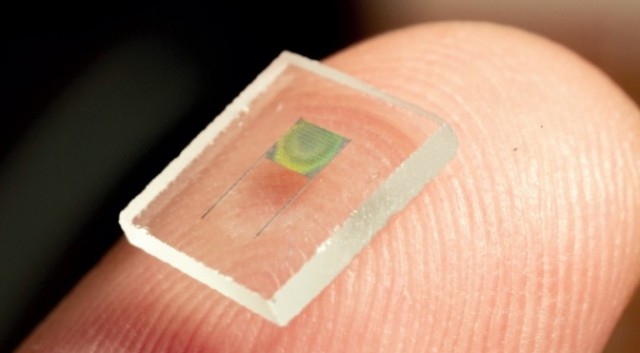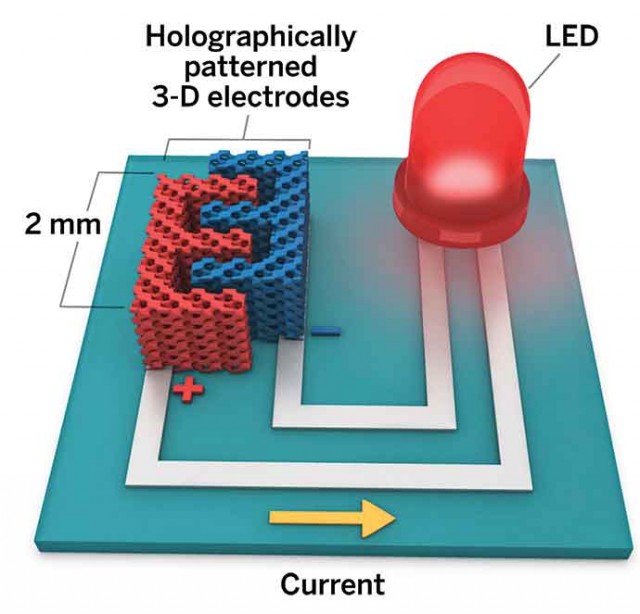
Seeking to expand battery footprint and increase the amount of surface area available for electricity-producing chemical reactions, scientists from the University of Illinois at Urbana-Champaign have managed to create microscopic, high-energy 3D lithium-ion batteries by leveraging the same light etching principles used to make holograms.
Holography as you may recall, can be thought of as the light-equivalent of sound recording: Where electric recording converts sound waves picked up by a microphones into an electrical signal that’s later interpreted by an amplifier, holography encodes fields of light by firing patterns of laser at photosensitive materials, causing the beam interference to harden into a 3D structure of that material. Holographic lithography — the technique’s proper name — is highly scale-able and compatible with existing microfabrication techniques, explain the scientists in journal Proceedings of the National Academy of Sciences .
The resulting 4-square millimeter battery measured 10-micrometers in thickness and generated a peak current of 500 microamperes; it can store 65 microwatt-hours of energy per square centimeter and deliver 36 milliwatts of power per square centimeter.

In a demonstration, the miniaturized on-chip battery successfully lit a standard red LED 200 times for 10 seconds at a time, and only lost about 12 percent of its capacity after 200 charging/discharging cycles. Nonetheless, for such a device to be deemed practical enough to move into the prototype stage, it must first be able to live through at least a few hundred such cycles. The University of Illinoi’ findings have set the precedent for all other microbatteries to follow, allowing us to one day see the technology manifest itself in microscope sensor and implanted medical devices.
Source: IEEE Spectrum
Advertisement
Learn more about Electronic Products Magazine





